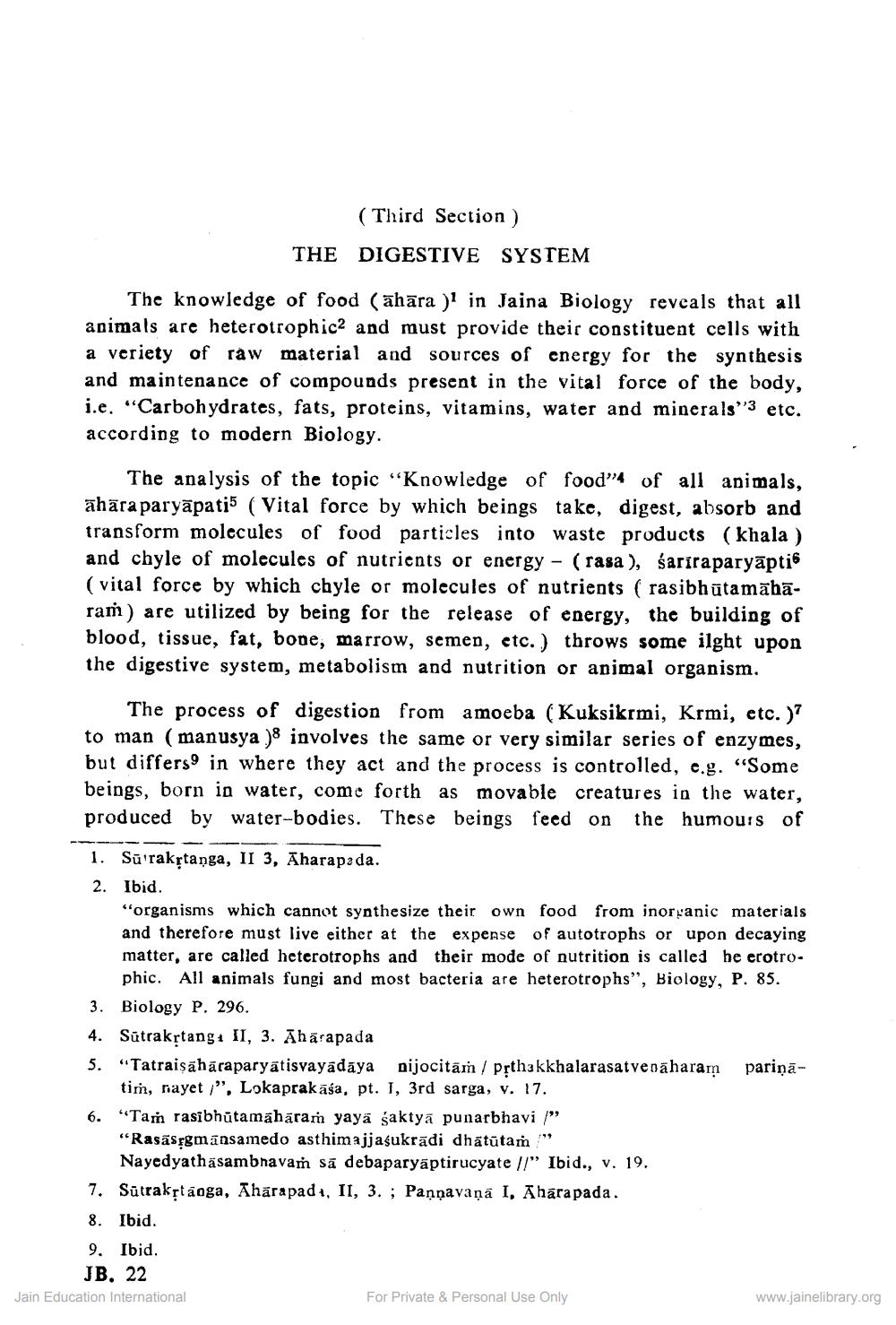________________
(Third Section)
THE DIGESTIVE SYSTEM
The knowledge of food (āhāra )' in Jaina Biology reveals that all animals are heterotrophic2 and must provide their constituent cells with a veriety of raw material and sources of energy for the synthesis and maintenance of compounds present in the vital force of the body, i.e. "Carbohydrates, fats, proteins, vitamins, water and minerals”3 etc. according to modern Biology.
The analysis of the topic “Knowledge of food”4 of all animals, ahāra paryāpati5 ( Vital force by which beings take, digest, absorb and transform molecules of food particles into waste products (khala ) and chyle of molecules of nutrients or energy - (rasa ), sariraparyāptis ( vital force by which chyle or molecules of nutrients ( rasibhūtamābāram) are utilized by being for the release of energy, the building of blood, tissue, fat, bone, marrow, semen, etc.) throws some ilght upon the digestive system, metabolism and nutrition or animal organism.
The process of digestion from amoeba (Kuksikrmi, Krmi, etc.)? to man (manusya )8 involves the same or very similar series of enzymes, but differs in where they act and the process is controlled, c.g. “Some beings, born in water, come forth as movable creatures in the water, produced by water-bodies. These beings feed on the humours of
1. Sū'rakstanga, II 3, Aharapada. 2. Ibid.
“organisms which cannot synthesize their own food from inorganic materials and therefore must live either at the expense of autotrophs or upon decaying matter, are called heterotrophs and their mode of nutrition is called he erotro
phic. All animals fungi and most bacteria are heterotrophs", Biology, P. 85. 3. Biology p. 296. 4. Sūtrakrtang+ II, 3. Ahārapada 5. "Tatraisāhāraparyātisvayadaya nijocitāṁ / Pfthakkhalarasatvena haram pariņā
tim, nayet /". Lokaprakāśa, pt. 1, 3rd sarga, v. 17. "Tam rasibhūtamaharam yaya saktyä punarbhavi / "Rasasrgmansamedo asthim ajjaśukrādi dhātūtam"
Nayedyathasambhavam să debaparyaptirucyate //" Ibid., v. 19. 7. Sūtraksikoga, Ahārapad 1, II, 3. ; Pannavaņā I, Aharapada. 8. Ibid. 9. Ibid.
JB. 22 Jain Education International For Private & Personal Use Only
www.jainelibrary.org




